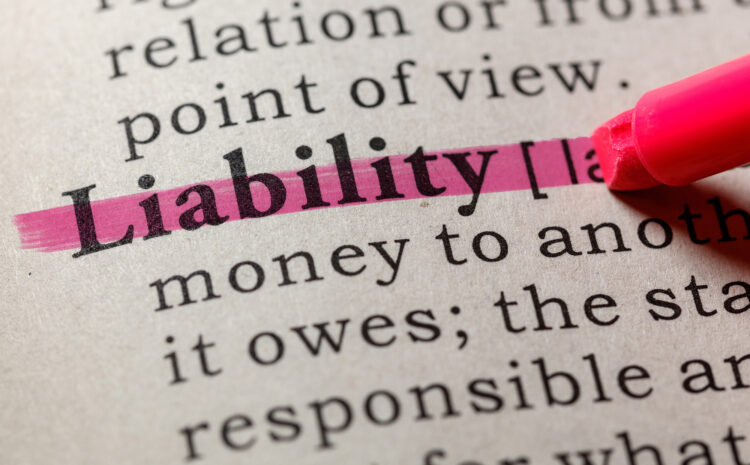
How to Choose the Right Liability Insurance for Your Rhode Island Rental Property
As a landlord in Rhode Island, one of your primary concerns is ensuring that your rental property remains protected from potential risks and liabilities. While property damage insurance is essential for covering the physical structure of your rental, landlord liability insurance is equally important. This type of coverage helps protect you from legal and financial consequences in the event that someone is injured on your property or if you’re held responsible for property damage caused by your tenants.
In this guide, we’ll explore what landlord liability insurance is, why it’s critical for Rhode Island landlords, and how to choose the right coverage for your specific rental property. By making an informed decision about your insurance needs, you can safeguard your financial future and ensure peace of mind for both you and your tenants.
1.What is Landlord Liability Insurance?
Landlord liability insurance is a type of insurance that protects property owners from financial losses resulting from accidents or injuries that occur on their rental properties. This coverage is designed to protect landlords from lawsuits and legal expenses when a third party—such as a tenant, guest, or vendor—suffers injury or property damage while on the premises.
For example, if a tenant slips and falls on an icy sidewalk or a guest is injured due to a poorly maintained stairway, landlord liability insurance can cover medical expenses, legal fees, and any damages awarded to the injured party.
Landlord liability insurance typically covers the following:
- Bodily Injury: Covers medical expenses and legal costs if someone is injured on your rental property.
- Property Damage: Protects against damage caused by tenants, guests, or contractors that affects someone else’s property.
- Legal Fees: Covers the cost of legal defense if you’re sued after an accident or injury.
- Settlement Costs: If you are found liable for the injury or damage, your insurance can help cover the cost of any settlements or court judgments.
2.Why Landlord Liability Insurance is Essential for Rhode Island Property Owners
Owning a rental property is a significant investment, and ensuring your property is well-protected is critical to its long-term success. Here are a few reasons why landlord liability insurance is essential for property owners in Rhode Island:
a. Protection from Tenant and Visitor Injuries
Rental properties are subject to high foot traffic. Tenants, guests, maintenance personnel, and delivery drivers all spend time on your property, increasing the risk of accidents. Slip-and-fall accidents, injuries caused by faulty stairways, or incidents related to poor lighting or uneven walkways can lead to significant liability claims. Without liability insurance, you could be financially responsible for medical costs, legal fees, and other related expenses.
b. Protection Against Property Damage Claims
While your tenants are generally responsible for damages caused to the property, there may be instances where you are held liable for damages to your tenants’ personal belongings. For example, if a fire starts in your rental unit due to faulty wiring or if flooding occurs because of an issue you didn’t address, liability insurance can help cover the costs of any damages that affect your tenants’ personal property or belongings.
c. Legal Protection
In Rhode Island, as with any state, lawsuits and legal disputes are always a possibility. Even if you aren’t at fault, defending yourself in a lawsuit can be time-consuming and costly. Liability insurance can cover the cost of legal defense, including attorney fees, court costs, and settlement expenses. This coverage ensures you’re not financially burdened by the legal process, even if the outcome isn’t in your favor.
d. Compliance with Rental Agreements
In many cases, rental agreements and leases require landlords to have insurance coverage that protects their tenants and the property. By obtaining proper liability insurance, you not only protect your investment but also meet the terms of your rental agreement, which could help maintain a positive relationship with your tenants.
3.What Does Landlord Liability Insurance Cover in Rhode Island?
The specific coverage offered by landlord liability insurance can vary depending on the policy you choose, but here are the most common types of protection landlords can expect:
a. Tenant Injuries
If a tenant is injured on your property—whether it’s from a fall, an electrical issue, or a faulty appliance—your landlord liability insurance will cover the medical expenses and potential legal costs. For example, if a tenant trips on a broken step or is hurt by a faulty appliance you failed to repair, liability insurance can help pay for the medical treatment and cover the costs of defending against a lawsuit.
b. Injuries to Visitors or Guests
Landlord liability insurance will also protect you if a visitor or guest is injured on your property. For instance, if a guest slips on an icy driveway or a visitor is hurt in a common area of a multi-unit property, your policy can cover medical bills and any resulting legal fees.
c. Damage to Others’ Property
If your rental property causes damage to a neighbor’s property (e.g., a burst pipe that floods a neighboring unit), landlord liability insurance can help pay for the repair or replacement costs. This coverage can prevent you from being personally liable for significant damages to others’ property.
d. Legal Defense Costs
If you are sued after an injury or damage occurs on your rental property, liability insurance will help cover the costs associated with defending yourself. This includes attorney fees, court costs, and any settlement or judgment awarded to the injured party.
4.How to Choose the Right Landlord Liability Insurance in Rhode Island
Choosing the right landlord liability insurance is a key decision that requires careful consideration. Here are some important factors to keep in mind when selecting a policy:
a. Assess the Risks of Your Property
The first step in choosing the right insurance coverage is assessing the risks associated with your rental property. Consider factors like:
- The type of property: A single-family home, a multi-unit building, or a vacation rental may all have different risks associated with them.
- Location: Properties in areas prone to natural disasters (like floods or hurricanes) may require additional coverage.
- Tenant type: The type of tenants (e.g., students, families, or professionals) may influence the risk of accidents or claims.
By understanding the specific risks associated with your property, you can better determine the level of liability coverage you need.
b. Coverage Limits
Once you understand the risks, it’s important to choose a liability insurance policy with coverage limits that match your needs. The higher the coverage limit, the more protection you have in the event of a major claim. While the minimum coverage required may seem sufficient, it’s a good idea to purchase a policy with higher limits, especially if you own high-value property or have tenants who are more likely to file claims.
c. Umbrella Insurance
In addition to standard landlord liability insurance, consider adding an umbrella policy to provide additional coverage above and beyond the limits of your regular insurance policy. Umbrella insurance offers extra liability protection and is especially helpful if you own multiple rental properties or if you want peace of mind knowing that you’re covered in case of major claims.
d. Compare Insurance Providers
Not all insurance providers offer the same level of coverage or customer service. Take the time to compare policies from different insurance companies, paying attention to premiums, coverage limits, deductibles, and customer reviews. Choose an insurance company with a reputation for excellent service and prompt claims handling.
e. Ask About Additional Coverage Options
Some landlords may benefit from adding specific coverage options to their liability insurance policies. These may include:
- Flood insurance: Essential if your property is located in a flood-prone area.
- Property damage caused by tenants: While most landlord insurance policies cover tenant-caused damage, check if you need additional coverage for tenant-related issues like vandalism or destruction.
- Loss of income: Some policies provide coverage for loss of rental income if your property becomes uninhabitable due to damage.
5.Conclusion
Choosing the right landlord liability insurance for your rental property in Rhode Island is a crucial decision that helps protect your investment and provides peace of mind. By understanding what liability insurance covers and considering factors like property risk, coverage limits, and additional options, you can select the policy that best meets your needs.
Remember, having the right insurance coverage not only protects your property but also safeguards your financial future. Work with a trusted insurance provider to ensure that you have the right protection in place for your rental properties.
If you’re unsure about which policy is best for your property or need expert guidance on choosing landlord insurance, don’t hesitate to reach out to an experienced insurance agent. They can help you find the right coverage that ensures you’re protected in case the unexpected happens.
Contact your local insurance provider today to learn more about landlord liability insurance and how it can help protect your rental properties in Rhode Island!

